Five things we learned from Tirreno-Adriatico 2022
Remco Evenepoel is not yet the finished product
Pogačar continues to look unstoppable
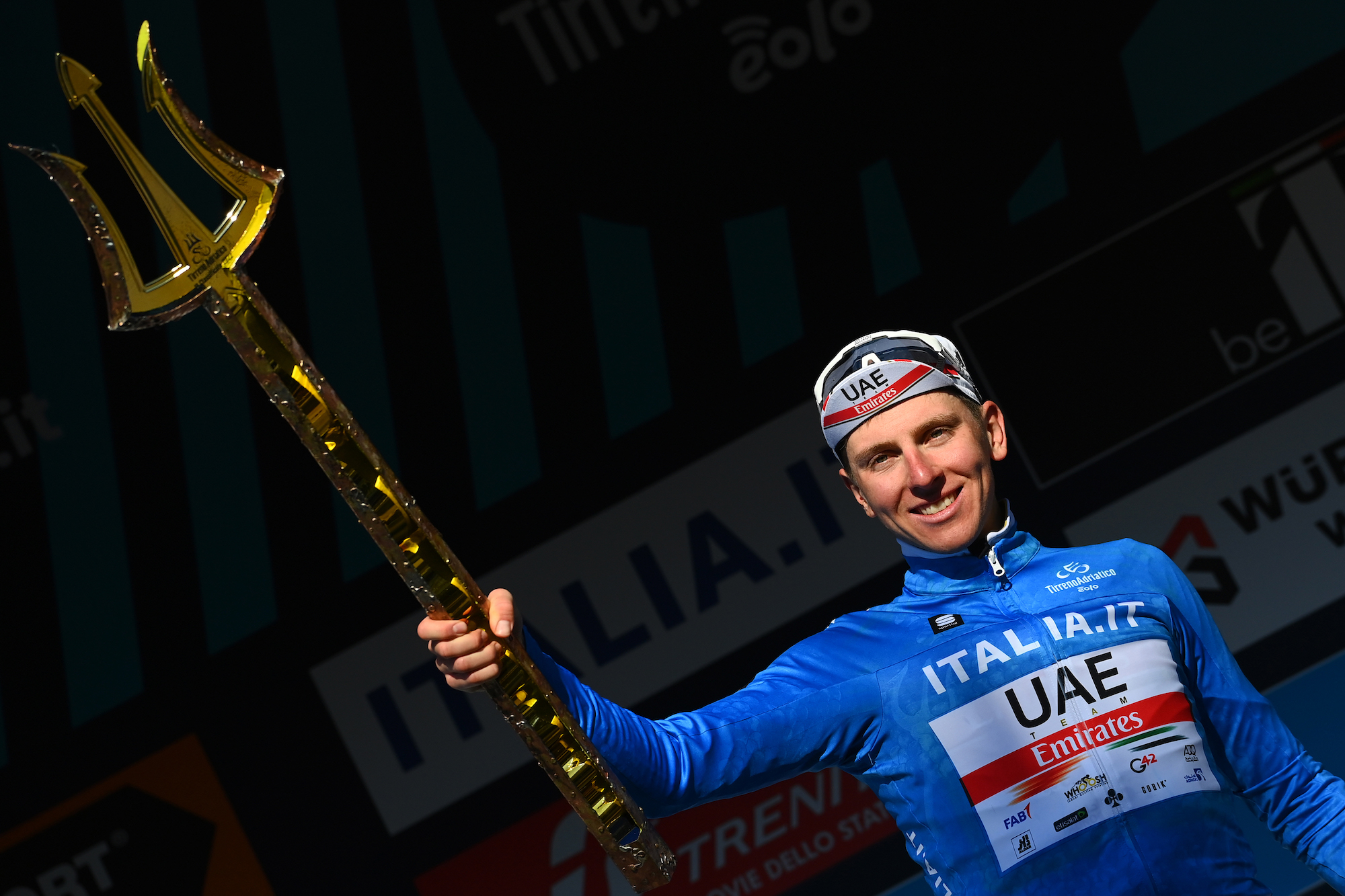
It’s still early days, but his form over the last couple of months suggests Tadej Pogačar (UAE Team Emirates) could be at the beginning of one of the all-time great seasons.
The way the Slovenian trounced the field with such ease this week, just as he had done at Strade Bianche and the UAE Tour previously, was genuinely jaw-dropping.
Jonas Vingegaard’s resigned manner at the end of Pogačar’s victory on the queen stage said it all. Like at last year’s Tour de France, Vingegaard finished second on GC, and a distant second-place. At no point did he put Pogačar under any kind of pressure, and the winning margin over him of 1-52 was the biggest at any Tirreno-Adriatico since the 2014 edition.
At this point the comparisons to Eddy Merckx feel justified, and Pogačar’s hunger for success was positively cannibal-esque. His UAE Team Emirates squad rode aggressively throughout, not content with just protecting the overall lead, but chasing down all breakaways so that Pogačar could win as many stages as possible too.
Ultimately, he won two as well as the overall victory, bringing his season tally up to seven already. If he can maintain this unbelievable form, then even the classics specialists have reason to fear when he shows up for the next races on his schedule, Milan-San Remo and the Tour of Flanders.
Evenepoel is still not the finished product
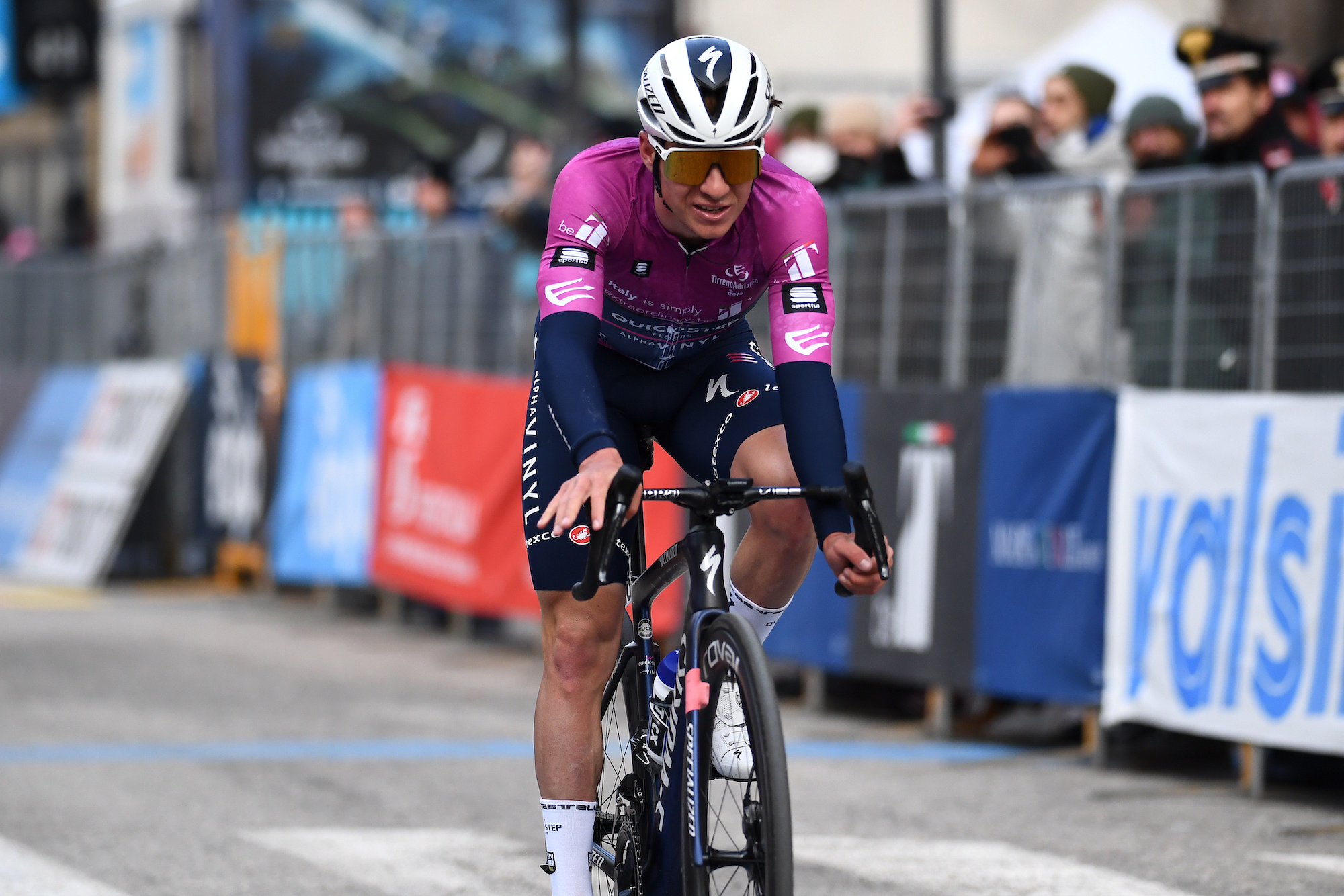
The much-anticipated duel between Pogačar and Remco Evenepoel (QuickStep-AlphaVinyl), who were facing off against each other in a stage race for the first time in their careers, turned out to be a damp squib, as Evenepoel was unable to put his adversary under any real pressure.
Prior to being dropped on the final mountain stage, Evenepoel rode bullishly, like a man who confidently believed that he had it in him to defeat Pogačar. The Belgian had the upper hand after the opening day time trial, where he gained seven seconds on Pogačar, then proceeded to attack him twice on a hilly circuit in Bellante on stage four, only to lose in the finishing uphill sprint.
Still undeterred, Evenepoel attacked again the next day, but this time came undone by a personal error — missing a right-hand turn, he wound up on the backfoot having to chase Pogačar and the group of favourites, where he had hoped to be putting everyone else under pressure.
Get The Leadout Newsletter
The latest race content, interviews, features, reviews and expert buying guides, direct to your inbox!
If that mishap could be dismissed as a freak incident, his travails the following day were of a more familiar kind. He has tended to struggle on the longer, higher mountain passes so far in his brief career, most notably during his Grand Tour debut and the Giro last year, and this was again the case on the queen stage when he was dropped from the group of favourites on the penultimate mountain of the day, seeing him tumble from second on GC to eleventh.
This was a reminder that Evenepoel, who is still only 22, is still far from the finished product, and that for all his undeniable talent, he has a long way to go until he can be considered a genuine rival to Pogačar.
Resurgent Landa among contingent of GC riders back in form
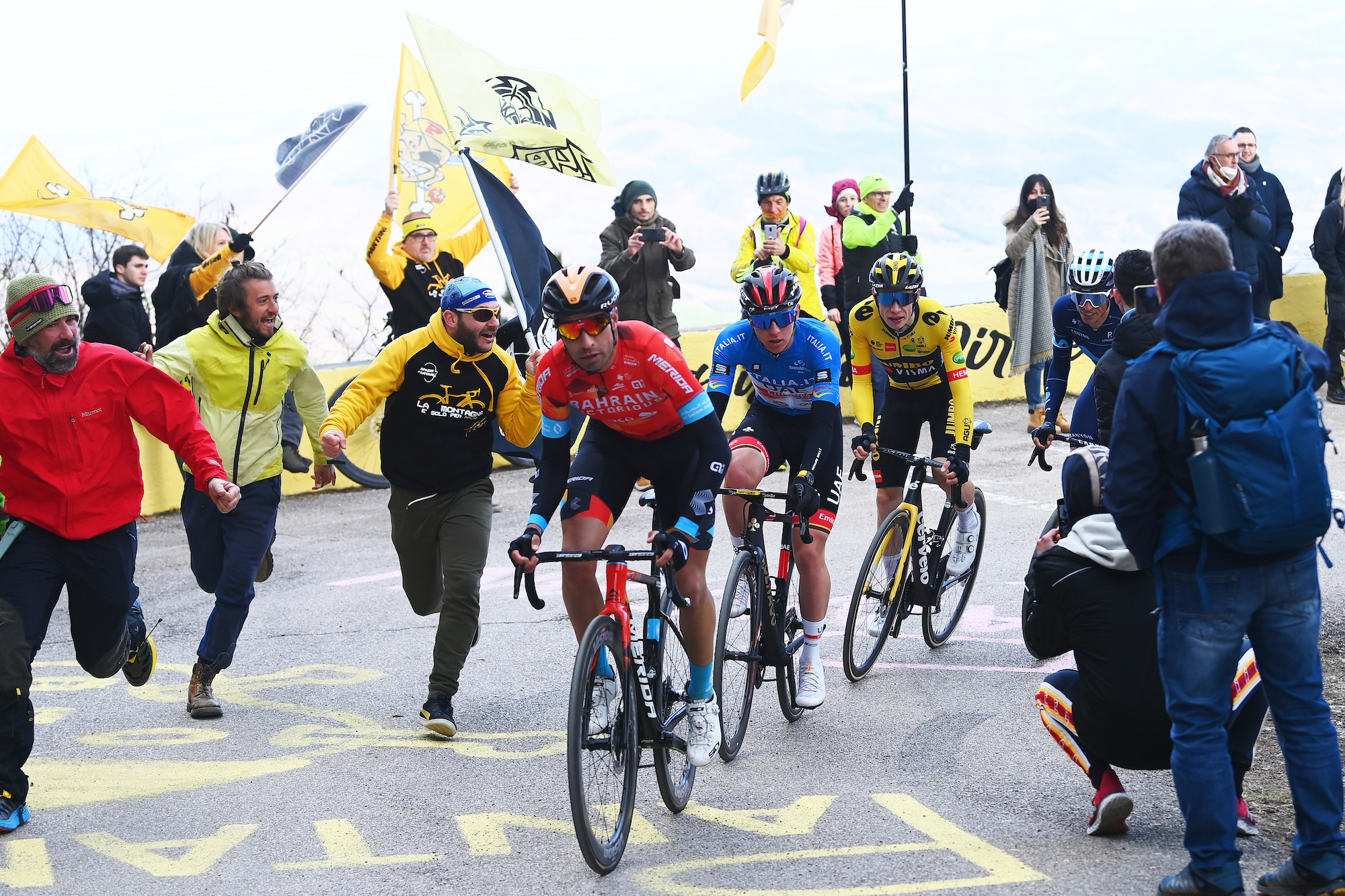
One of the trends of this year’s Tirreno was the resurgent form of several riders trying to bounce back from disappointing 2021 seasons.
Chief amongst them was Mikel Landa (Bahrain-Victorious), who finished third overall after forcing the selection with a stinging attack on stage six. His form in 2021 had been so underwhelming that he began this race behind Damiano Caruso and possibly even Pello Bilbao in Bahrain-Victorious’ pecking order, but now suddenly his still unfulfilled dream of winning a Grand Tour again looks like it could yet be achieved.
Just behind him on GC in fourth was Richie Porte (Ineos Grenadiers), who had looked like he might quietly wind down to retirement, and Jai Hindley (Bora-Hansgrohe) in fifth, arguably his best performance since finishing runner-up at the 2020 Giro d’Italia. The man who beat him in that race, Tao Gegohegan Hart, might have fallen away during the final stages after getting ill, but his rides in the preceding days indicate he might also be rediscovering his top form.
An eighth-place finish on GC suggests Thibaut Pinot’s career might be back on track also, while his French compatriot Warren Barguil also looked like his former self on stage five, when he embarked on the kind of successful solo attack that he made his name with several years ago.
Bunch finishes shared between multiple sprinters
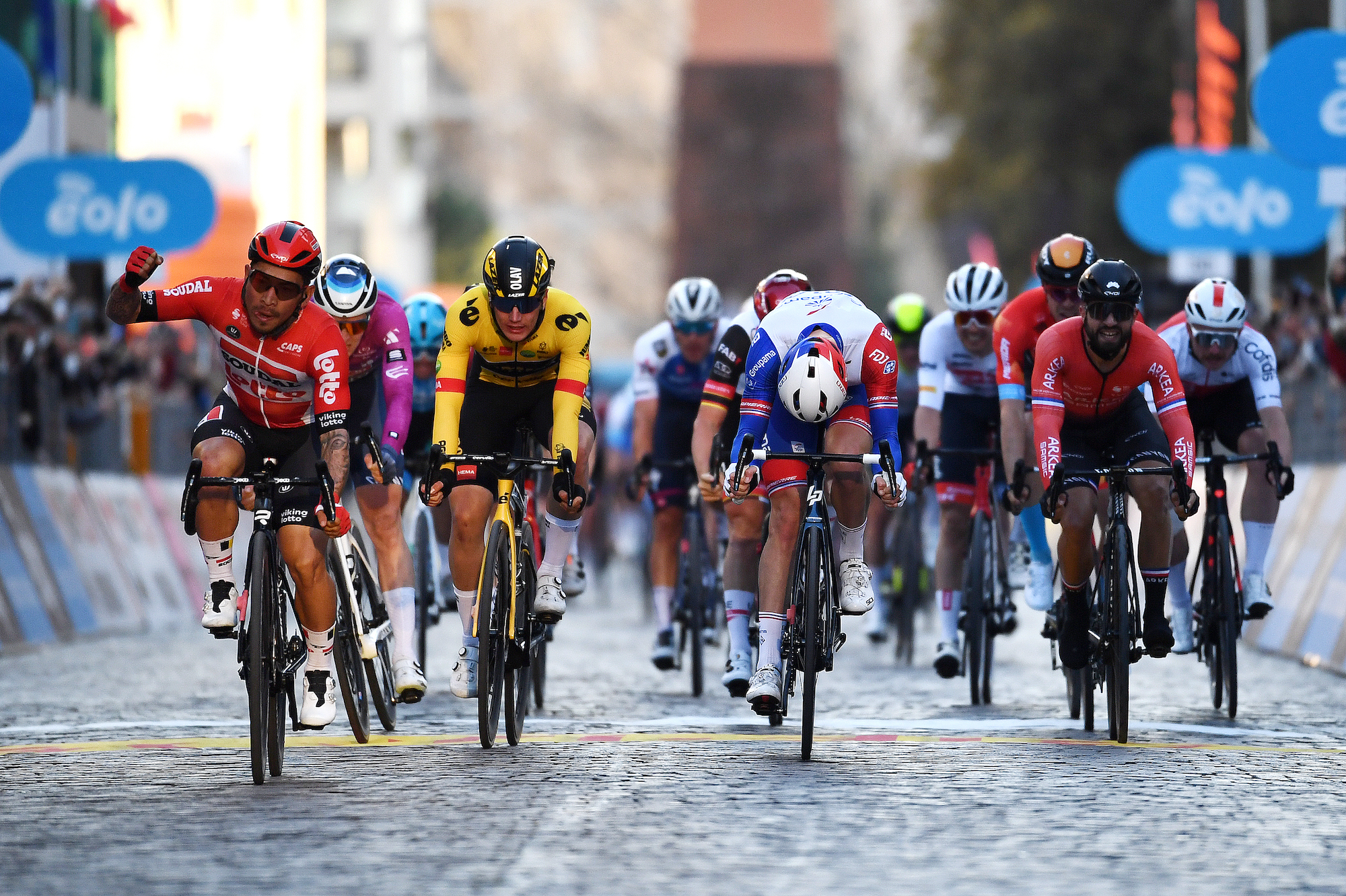
The final stage finish of Tirreno-Adriatico, in which four riders lunged to the line almost neck-and-neck, pretty much summed up the sprints at this year’s race, in which no one sprinter managed to dominate.
Phil Bauhaus (Bahrain-Victorious) was the winner that day, becoming the third different sprinter to take a stage during the week.
The others were Tim Merlier (Alpecin-Fenix), who triumphed in the first skirmish only to struggle to get involved in the following sprints, and Caleb Ewan (Lotto-Soudal) on stage three, storming to victory before retiring the following day as a precaution ahead of Milan-San Remo.
Mixing it up with these more experienced riders were the fresh young faces of 23-year-old Kaden Groves (BikeExchange-Jayco) and 20-year-old Olav Kooij (Jumbo-Visma). Neither were able to take what would for both have been a first ever World Tour win, but the speed with which Kooij finished stage two, and the consistency Groves showed to finish third on the first and last sprint of the race, bodes well for their futures.
And there was also a long-awaited sign of good form from Peter Sagan, who might have lacked a kick in the finale of the stage two sprint, but did great to position himself at the front to take fourth-place, his highest finish so far for new team TotalEnergies. Illness might have forced him to leave the race prematurely, but we can expect him now to be a feature of the spring classics.
Ganna reigns supreme in the time trial
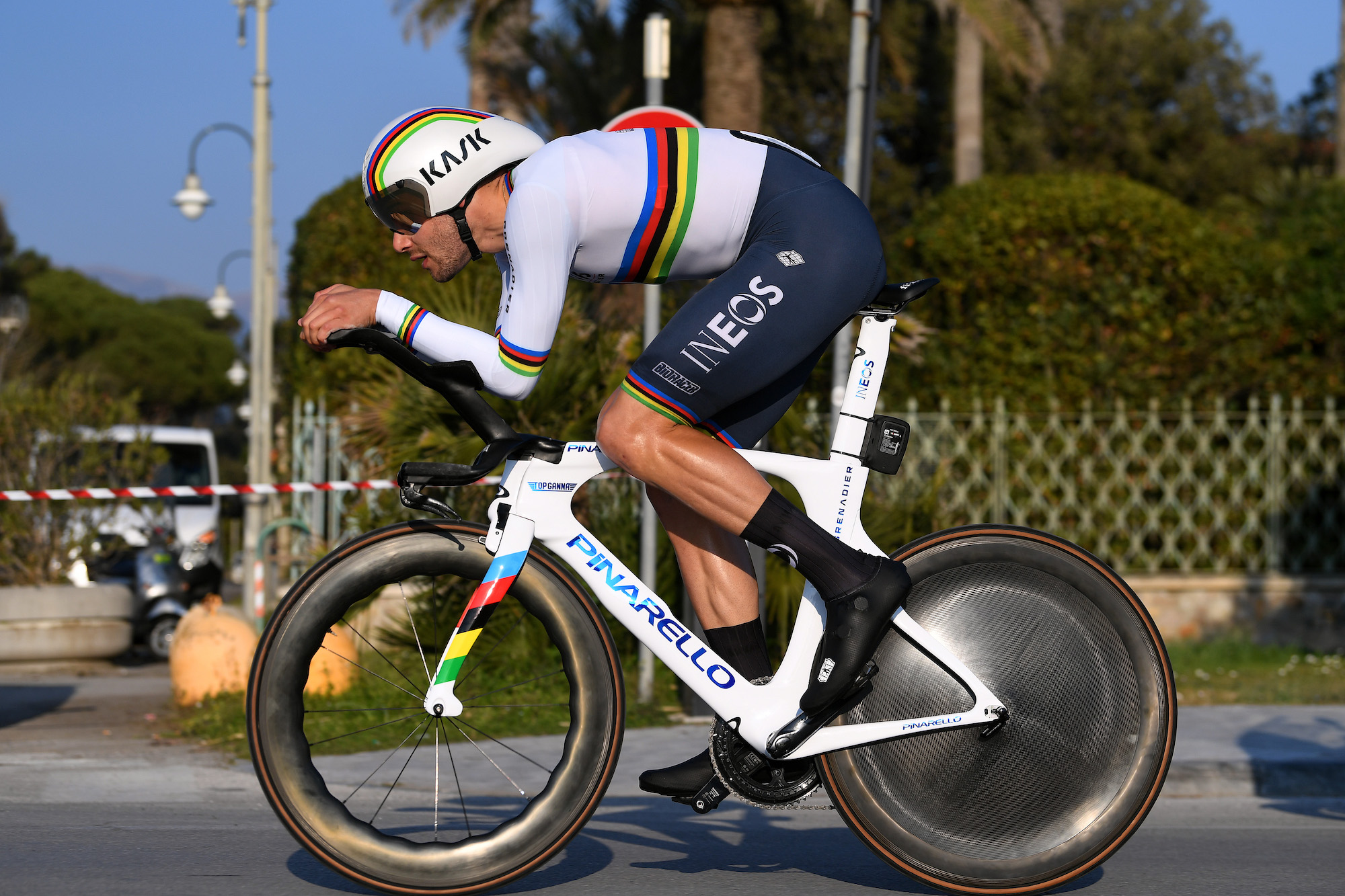
Bouncing back from his defeat to Stefan Bissegger (EF Education-EasyPost) at the UAE Tour, Filippo Ganna (Ineos Grenadiers) got the better of some tough competition to take his third time trial win of the season on the opening stage of Tirreno-Adriatico.
Given his heroics on the climbs at the UAE Tour, the question following that victory was how long could Ganna hold on to the overall lead for, and the way he accompanied such esteemed climbers as Remco Evenepoel and Tadej Pogačar on an uphill during stage four, indicated that he was eager to hold onto it for as long as possible.
But Pogačar’s acceleration on the uphill finish proved too much for the Italian, who then reverted back to a domestique role.
It had been wondered by some whether his improved climbing might have the side-effect of losing some of his speed against the clock, a theory backed-up by his defeat at the UAE Tour. But nobody aside from Pogačar nor Evenepoel came within 20 seconds of his time at Lido di Camaiore, and even they were over ten seconds adrift.
Much to the delight of the local Italian fans, Ganna remains the man to beat in time trials.

Thank you for reading 20 articles this month* Join now for unlimited access
Enjoy your first month for just £1 / $1 / €1
*Read 5 free articles per month without a subscription

Join now for unlimited access
Try first month for just £1 / $1 / €1
Stephen Puddicombe is a freelance journalist for Cycling Weekly, who regularly contributes to our World Tour racing coverage with race reports, news stories, interviews and features. Outside of cycling, he also enjoys writing about film and TV - but you won't find much of that content embedded into his CW articles.
-
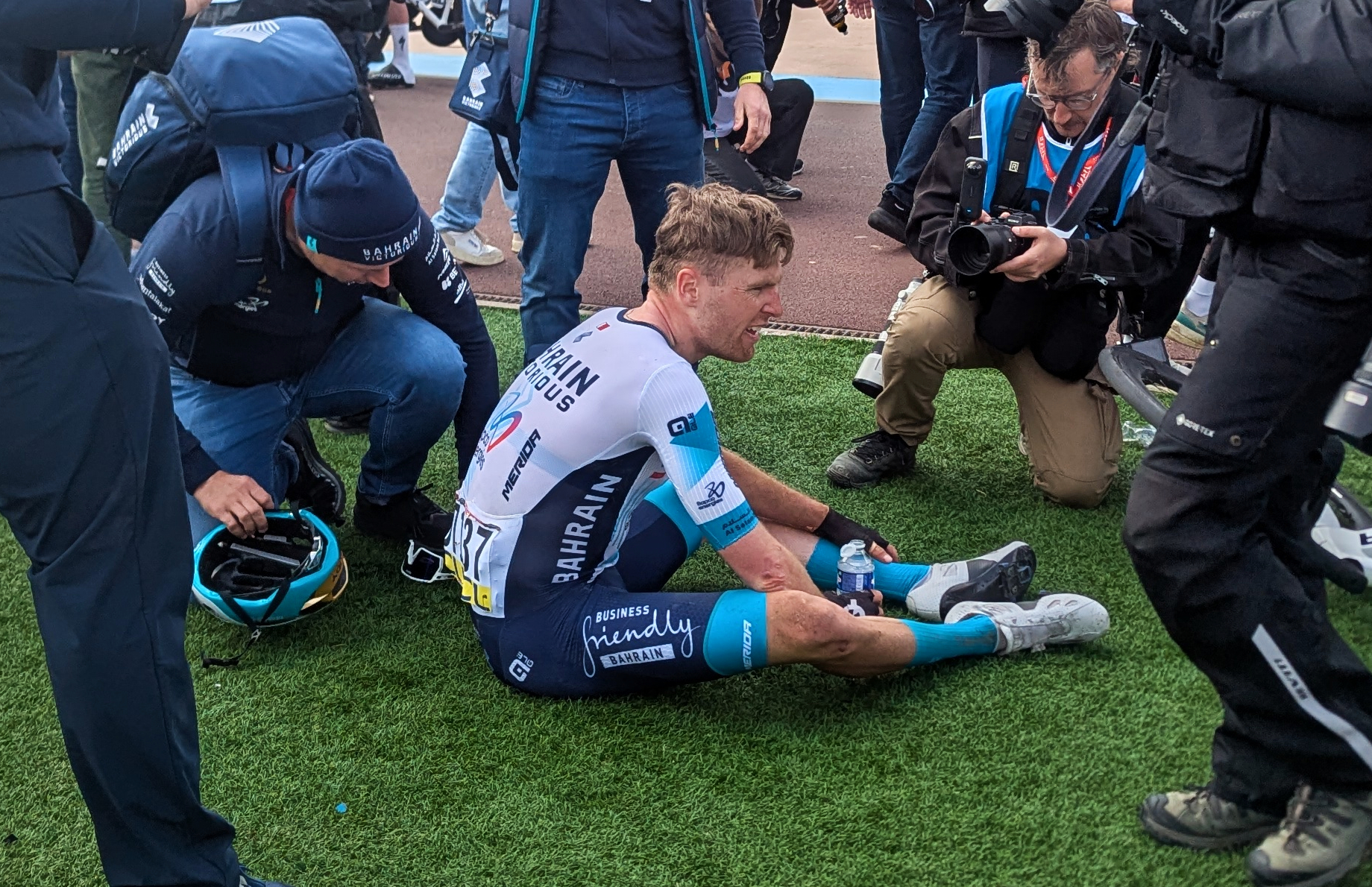 'I'll take a top 10, that's alright in the end' - Fred Wright finishes best of British at Paris-Roubaix
'I'll take a top 10, that's alright in the end' - Fred Wright finishes best of British at Paris-RoubaixBahrain-Victorious rider came back from a mechanical on the Arenberg to place ninth
By Adam Becket Published
-
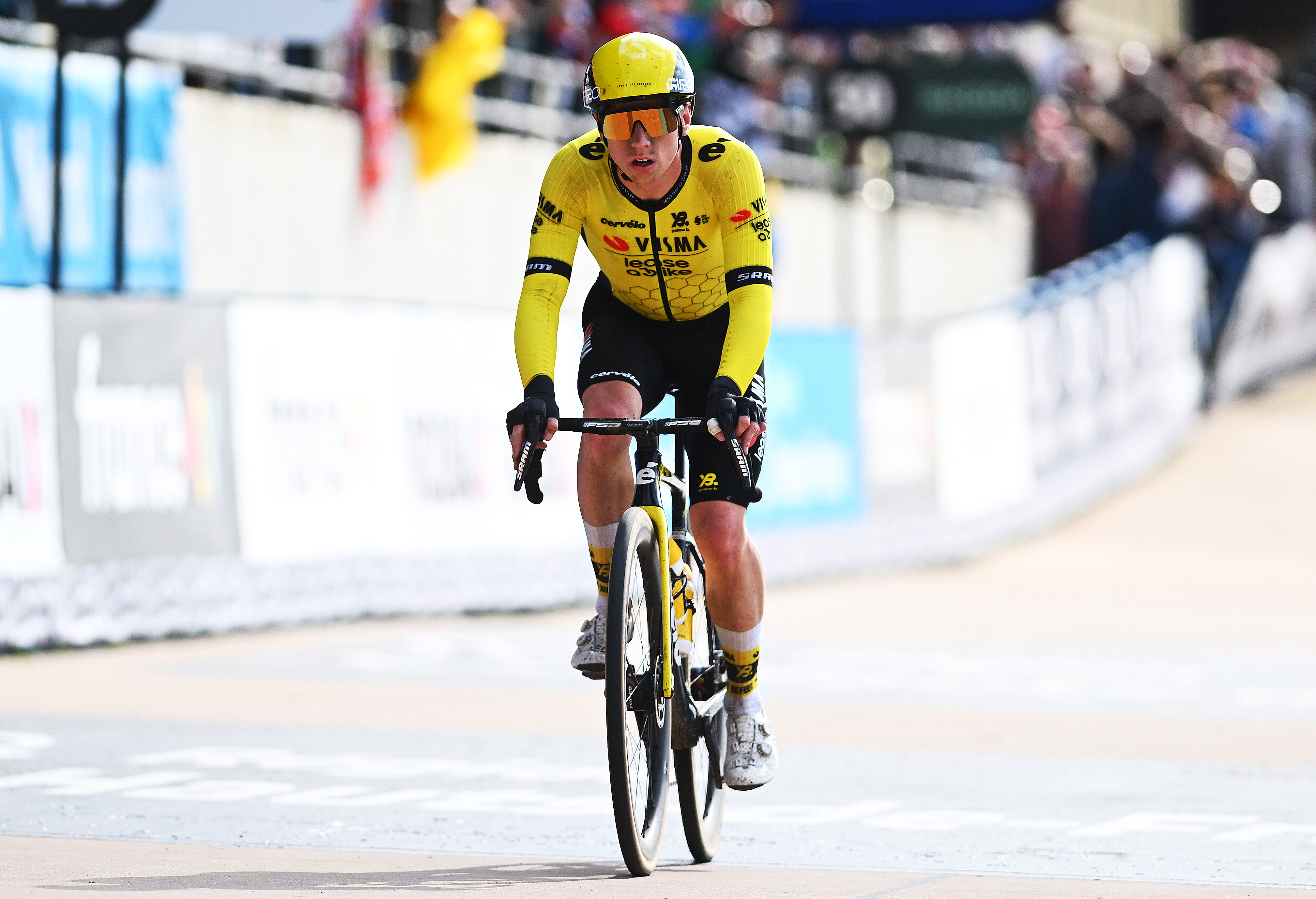 'This is the furthest ride I've actually ever done' - Matthew Brennan lights up Paris-Roubaix at 19 years old
'This is the furthest ride I've actually ever done' - Matthew Brennan lights up Paris-Roubaix at 19 years oldThe day's youngest rider reflects on 'killer' Monument debut
By Tom Davidson Published